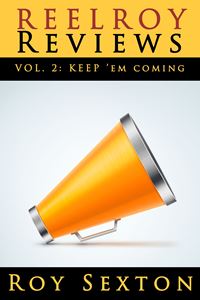Based on the novel of the same name by Lisa Genova, Still Alice is directed with great grace and humanity by Richard Glatzer and Wash Westmoreland. They have surrounded Moore with an exceptional supporting cast, from Alec Baldwin as her loving but identifiably selfish husband to Kate Bosworth as their straight-arrow, OCD, super-WASP daughter. The real revelation in the film is Kristen Stewart (Twilight) as the Howlands’ other daughter, a seemingly self-absorbed aspiring actress who ends up being the most pragmatic and empathetic member of the family. Stewart matches Moore in terms of subtlety and delicate character work, avoiding the “walking wounded/black sheep” cliches and revealing a great gift for authentically portraying the perennially misunderstood.
The film suffers, as so many Hollywood productions do, from some precious production design; Hollywood loves to fetishize the upper-middle-class family where both parents are well-heeled, progressive, accomplished careerists. In this case, Alice and John Howland are faculty members at Columbia University, residing in a tony brownstone in New York while maintaining a shabby chic vacation home in Saugatuck – with decor straight from the Restoration Hardware catalog, subdued fashion of the Anthropologie ilk, and too many cutesy stops for Pinkberry frozen yogurt. The family hosts Christmas dinners that would make Martha Stewart swoon, with freshly scrubbed progeny humble-bragging about their sparkling careers in law and medicine, gabbing about in vitro fertilization, drinking wine, and making small talk about NPR.
Yet, that fairy tale context very well may be part of the film’s point, that even these perfect specimens of humanity can be felled in the blink of an eye by an unforeseen medical diagnosis. The cast does a marvelous job creating a portrait of a loving family that is as competitive and neurotic as they are accomplished and polished. Vast chunks of the film are spent in the kitchen or around the dining room table with food as a catalyst (as it is in most American homes) for the deepest, thorniest conversations.
For Moore’s Alice Howland, a professor of linguistics, language is essential. The inability to access a word, to complete a thought, to recall a name demolishes Alice. Moore’s superhuman command of body language, of the light in her eyes, of the quiver of her lips telegraphs the firestorm of panic, anxiety, and abject fear plaguing Alice as her mind proceeds to fail her at an alarming rate of decay.
I had a theatre director (Ohio State’s Rex McGraw) once tell me that the best way to get an audience to cry is to portray a character trying not to cry, that the audience’s cathartic impulse while watching a character grapple to contain emotion will unleash their own floodgates. Boy, does Moore get that. Who would have thunk it back when I was watching Moore play Frannie Hughes (and her naughty identical British half-sister Sabrina!) on sudser As the World Turns in the 80s, that one day I would be sobbing buckets over her tour de force balancing act in Still Alice as a frightened yet brave soul resisting with every fiber of her being the marginalization that her disease by its very nature necessitates.
I guarantee you will be a puddle on the floor when Moore gives her heart-stopping speech at an Alzheimer’s conference at the film’s midpoint. She is subdued and subtle and detailed and immersive, simultaneously controlled and raw. For one last brief shining moment, Moore’s Alice (who at another point in the film quips, “I wish I had cancer. At least, they get a pink ribbon to wear!”) reclaims herself before the waves of this insidious disease wash her away almost entirely.
I highly recommend this film, not simply as a spectacular treatise on a disease that is both nefarious and leveling, but especially as a beautiful and torturous portrait of a (more or less) typical American family stoically going through the motions of falling apart.
____________________________
Reel Roy Reviews is now TWO books! You can purchase your copies by clicking here (print and digital)
In addition to online ordering at Amazon or from the publisher Open Books, the first book is currently is being carried by Bookbound, Common Language Bookstore, and Crazy Wisdom Bookstore and Tea Room in Ann Arbor, Michigan and by Green Brain Comics in Dearborn, Michigan.
My mom Susie Duncan Sexton’s Secrets of an Old Typewriter series is also available on Amazon and at Bookbound and Common Language.

![Description: Film poster; Source: Wikipedia [linked]; Portion used: Film poster only; Low resolution? Sufficient resolution for illustration, but considerably lower resolution than original. Other information: Intellectual property by film studio. Non-free media use rationales: Non-free media use rationale - Article/review; Purpose of use: Used for purposes of critical commentary and illustration in an educational article about the film. The poster is used as the primary means of visual identification of this article topic. Replaceable? Protected by copyright, therefore a free use alternative won't exist.](https://reelroyreviews.com/wp-content/uploads/2015/02/still-alice.jpg?w=202&h=300)

this was such a beautifully and thoughtfully written review, roy. and i cannot wait to see this film that sounds like it has the same qualities.
Thank you, Beth! I appreciate that. You will really love this film.
>
great response from beth! this is just wonderful to read…and yes, we spent many hours watching frannie back in the day! I loved her in the movie where she aspired to be a writer and how horrendous that experience can be…I think of that message–she delivered so perfectly– very often! 😉 oh, indeed I do!
The prize winner of defiance, Ohio! Such a marvelous movie. One of my favorites. I think you would love this one too. And I agree with your assessment of that fabulous film
>
i loved the prizewinner of d.o. so much, too!
wonderful film!!
On Wed, Feb 18, 2015 at 10:41 AM, Reel Roy Reviews wrote:
>
Pingback: The Movies We Loved in 2014 — By Friends of the Blog « Reel Roy Reviews